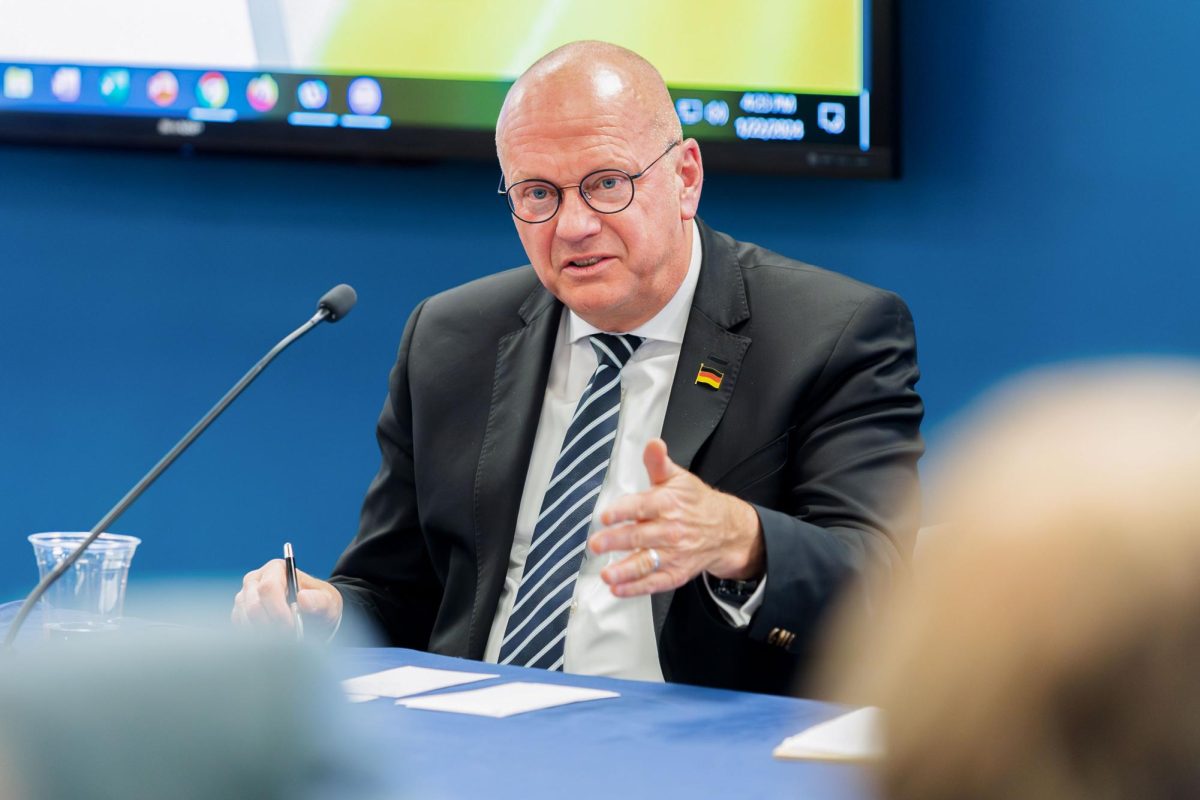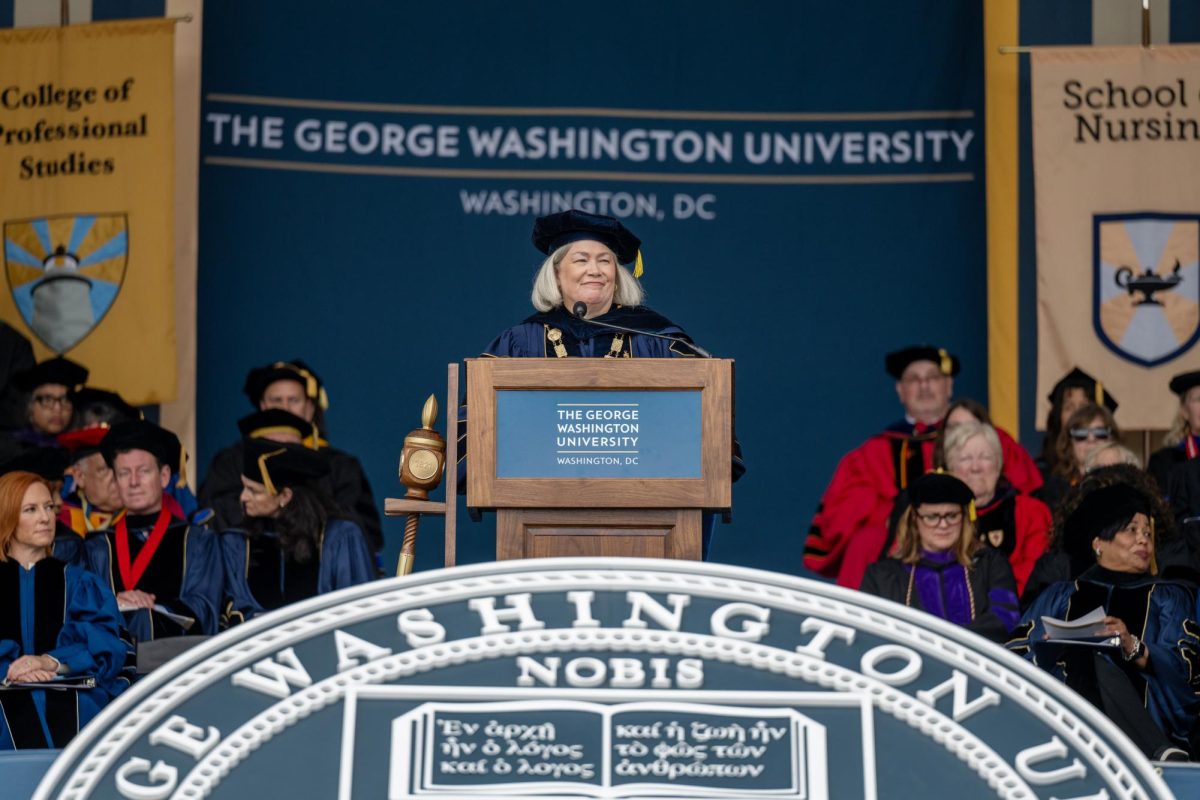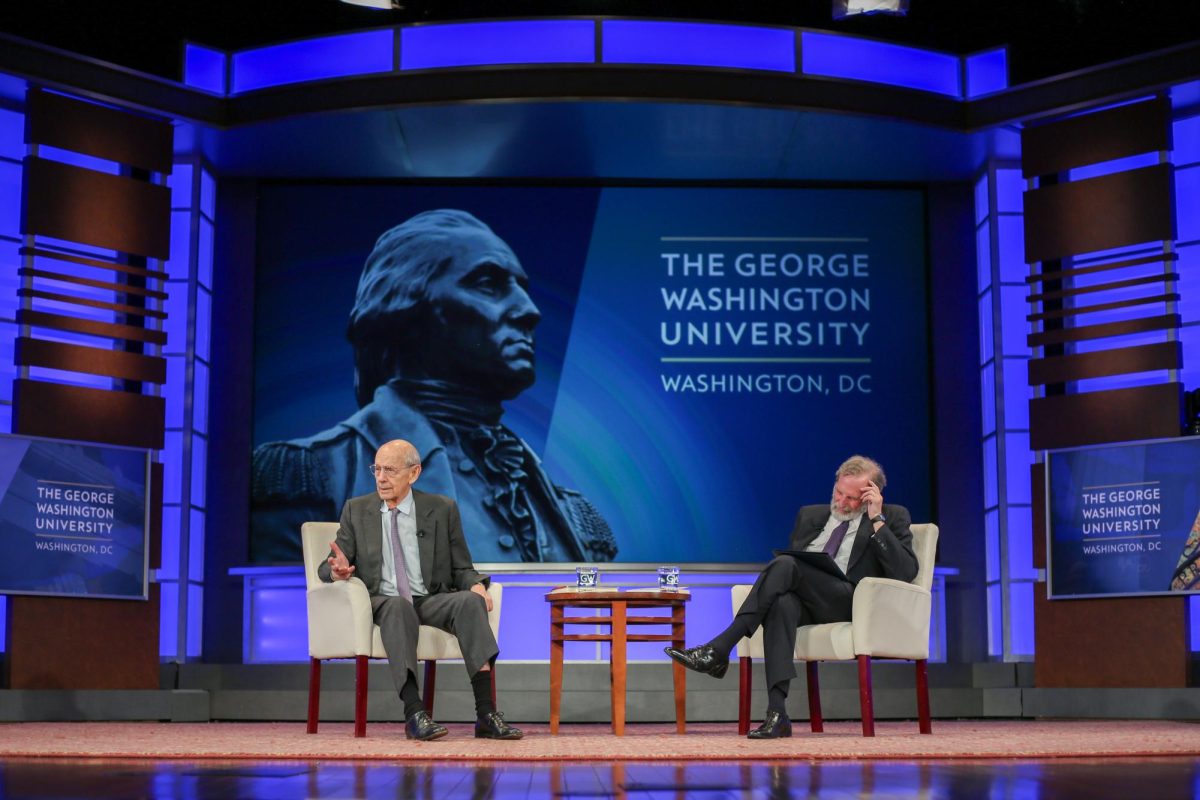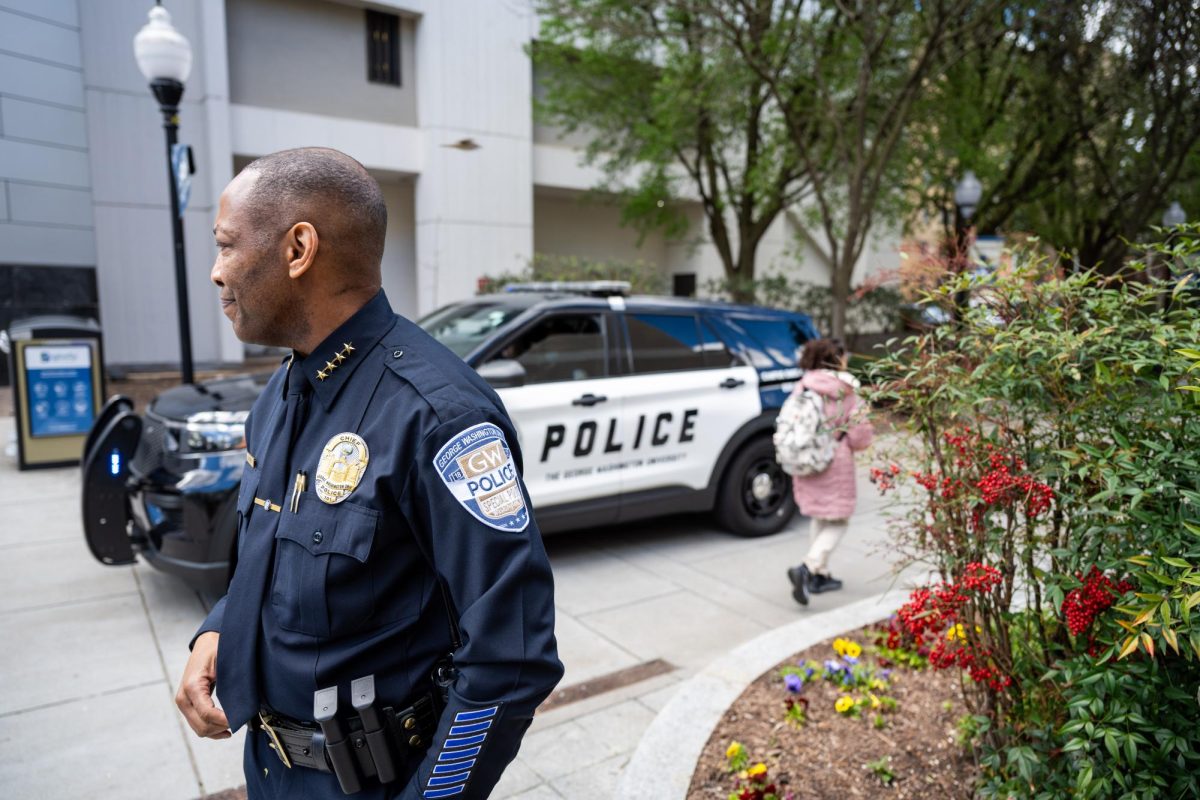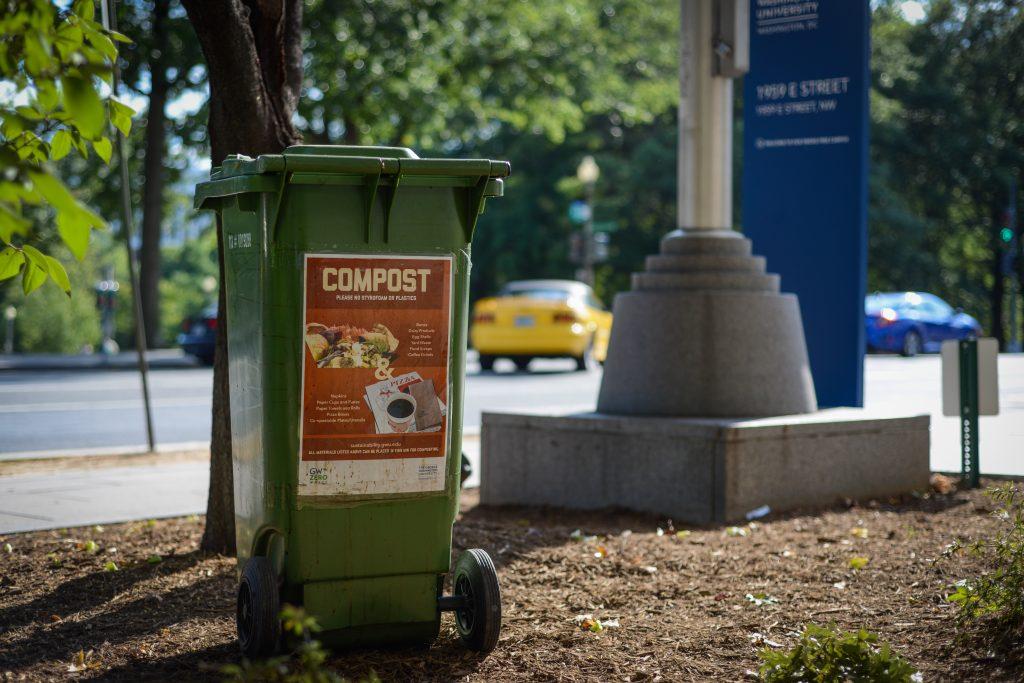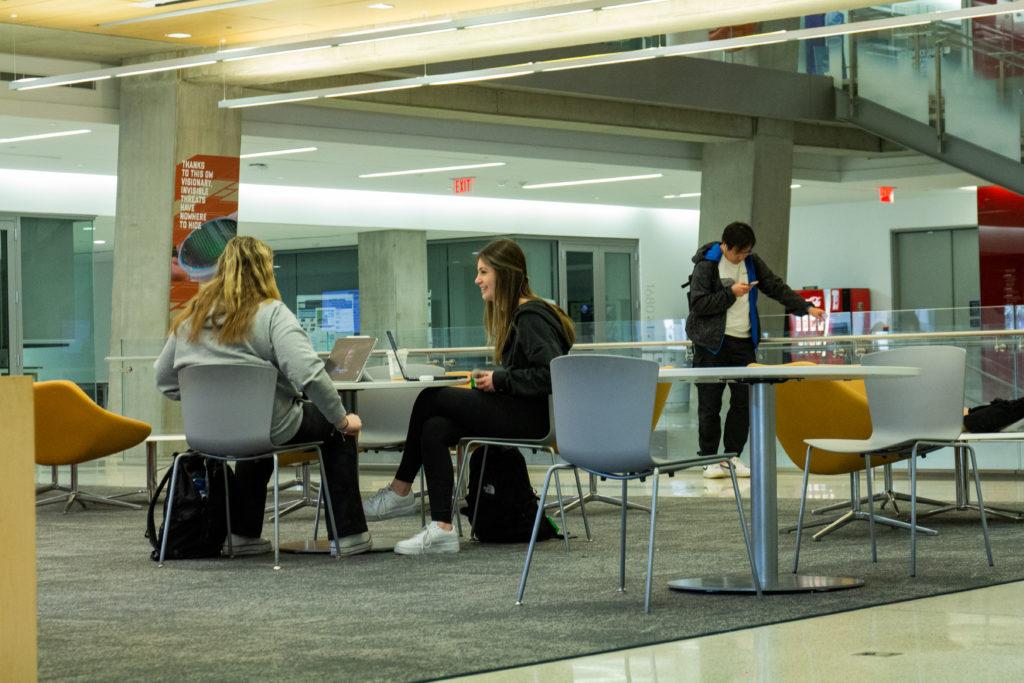The German Ambassador to the United States discussed relations between the two countries at the Elliott School of International Affairs on Monday.
Andreas Michaelis, Germany’s U.S. ambassador since August 2023, said American and German relations are strong, especially as they work to support Ukraine in its war with Russia and other issues on national and international stages. The Institute for European, Russian and Eurasian Studies hosted the conversation with Michaelis and Hope Harrison, a professor of history and international affairs.
Michaelis said he is honored to serve as the U.S.’ German ambassador after a 30 yearslong diplomatic career, which included posts like the German Ambassador to Singapore from 2002 to 2006, German Ambassador to Israel from 2011 to 2015 and German Ambassador in London from 2020 to 2022.
“Very happy to be in the U.S.,” Michaelis said. “It’s the kind of step in your diplomatic career you can’t prepare yourself for because it’s one of those where you can maybe dream, but you can’t really work towards it in any meaningful way.”
Michaelis said he has never seen U.S.-German relations at as “great quality” as they are today. More than a decade ago, Germany and the U.S. had a dialogue and were not as cooperative as they are today, he said.
Michaelis pointed to German and American support of Ukraine after Russia’s invasion of the country in 2022 as an example of this cooperation. The U.S. and Germany are the two biggest contributors of aid to Ukraine, according to the Kiel Institute for World Economy.
Michaelis said a potential win by former President Donald Trump — who has expressed hesitancy working with NATO — in the 2024 U.S. presidential election and the prospect of Trump changing the U.S.’ international relations is not of utmost concern, despite the attention the possibility often draws in the media. He said diplomats have to “think in scenarios” and be cognizant of many possibilities and how to best deal with each of them.
“What it requires on your part to be able to deal with it is that you have a readiness to improvise in the situation,” Michaelis said. “And I very much believe that when we look at scenarios that may become important — in the context of the relationship between the U.S. and Europe and the U.S. and Germany — depends on the ability to actually react quickly once things develop in a certain direction.”
Michaelis said he was proud of the demonstrators who protested across Germany earlier this month against the right-wing Alternative for Germany party after the group met to plan the mass deportation of citizens of foreign origin. He said it is critical to have active participation from citizens in situations where Germany’s republic is threatened.
“This is what I expected of my countrymen,” Michaelis said.
For many years, Germany underestimated the importance of investing in its own security and defense, Michaelis said. He said there were many discussions among German officials about which structures to enact, including a national security council, but ensuring the council would fit in with Germany’s parliamentary system of government was a key component in the talks.
“When I say invest, I mean it in a very comprehensive way, “ Michaelis said. “This is not just about the military side of things. I would almost say it was more, in the case of this particular strategy, about some nonmilitary sides.”
Michaelis said his own negotiation tactics mirror the “direct, straightforward” way of diplomacy, rather than “old school” diplomacy, which wastes time getting to the point of what one wants to achieve. He said the direct methodology is one he’d recommend to students interested in international affairs.
“Let’s be transparent,” Michaelis said. “Let’s be clear about what you try to achieve in a negotiation, and then be ready to actually compromise and work with vectors that come up in practice.”


